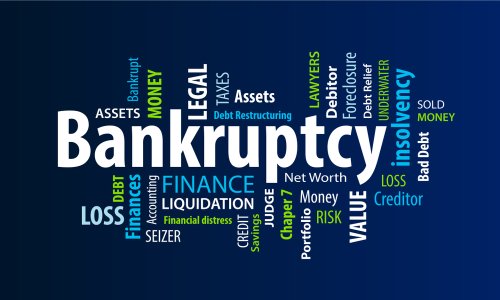Bankruptcy gives you breathing room when bills are piling up, creditors are calling and you can’t catch a break financially. It eliminates many forms of debt and helps you create a clear path forward. As you explore filing for bankruptcy, the first question to arise is often: Which should I choose, Chapter 7 or 13? Taking a closer look at these options can help you determine which will be the right choice for your situation.
What is Chapter 7 Bankruptcy?
Chapter 7, which is also known as a liquidation bankruptcy, is focused on two primary activities: reviewing your assets to see if you have non-exempt assets that can be turned into cash that can pay back some of your debts and attempting to eliminate the remaining debts. In the process, creditors will receive notice of the automatic stay, which means they must stop contacting you about unpaid bills. Unsecured debts, like medical bills and credit card balances, can usually be wiped out in Chapter 7 bankruptcy, which can go a long way toward improving your financial picture.
What is Chapter 13 Bankruptcy?
Chapter 13, also called reorganization bankruptcy, creates a detailed plan to pay back creditors while prioritizing your debts and forcing lower payoff amounts. In many cases, unsecured debts like credit cards and medical bill receive cents on the dollar and they the balances are wiped out. In Chapter 13, you will pay only disposable income, or the amount above your living expenses, toward unsecured debts for a period of three to five years. It also gives you a chance to catch up on secured debts like mortgages or car loans and work on regaining your good standing with creditors.
How Do I Know Which One to Choose?
Both businesses and individuals can file for Chapter 7. Chapter 13 applies only to individuals and sole proprietors. Chapter 13 is often used by employed people who make too much money to qualify for a Chapter 7 bankruptcy filing. Chapter 13 also allows you to keep your home and catch up on mortgage payments, so look closely at this option if you’re a homeowner. If you have a car that you are behind on, but want to keep, Chapter 13 could allow you to continue driving it as you make lower payments. A Chapter 7 is not good at helping people get caught up on this kind of debt. Timing is also a consideration. Chapter 7 usually runs its course over a period of months, while Chapter 13 takes 3 to 5 years.
Can I Eliminate All Debts with Chapter 7 or 13 Bankruptcy?
Neither Chapter 7 nor Chapter 13 can wipe out all types of debt. Some debts are considered non-dischargeable in bankruptcy. If you owe alimony, child support or student loans, they will still be owed no matter which path you choose. The same goes for back taxes, which you may still owe to the government regardless of your bankruptcy status. This is a big reason why it’s important to work with a bankruptcy attorney. We can help you determine which payments you should and should not continue to make during bankruptcy, so you’ll end up with the best financial situation possible.
Sawin & Shea – Indianapolis Bankruptcy Attorneys
Filing for bankruptcy is not the end. It’s the beginning of a new financial life for you. The Indiana bankruptcy attorneys at Sawin & Shea can help you get rid of the overwhelming debt and advise you on life after bankruptcy. We are here for you during this life-changing process. Please do not hesitate to call us today at 317-759-1483 or send an email for a free consultation. We are ready to help.



